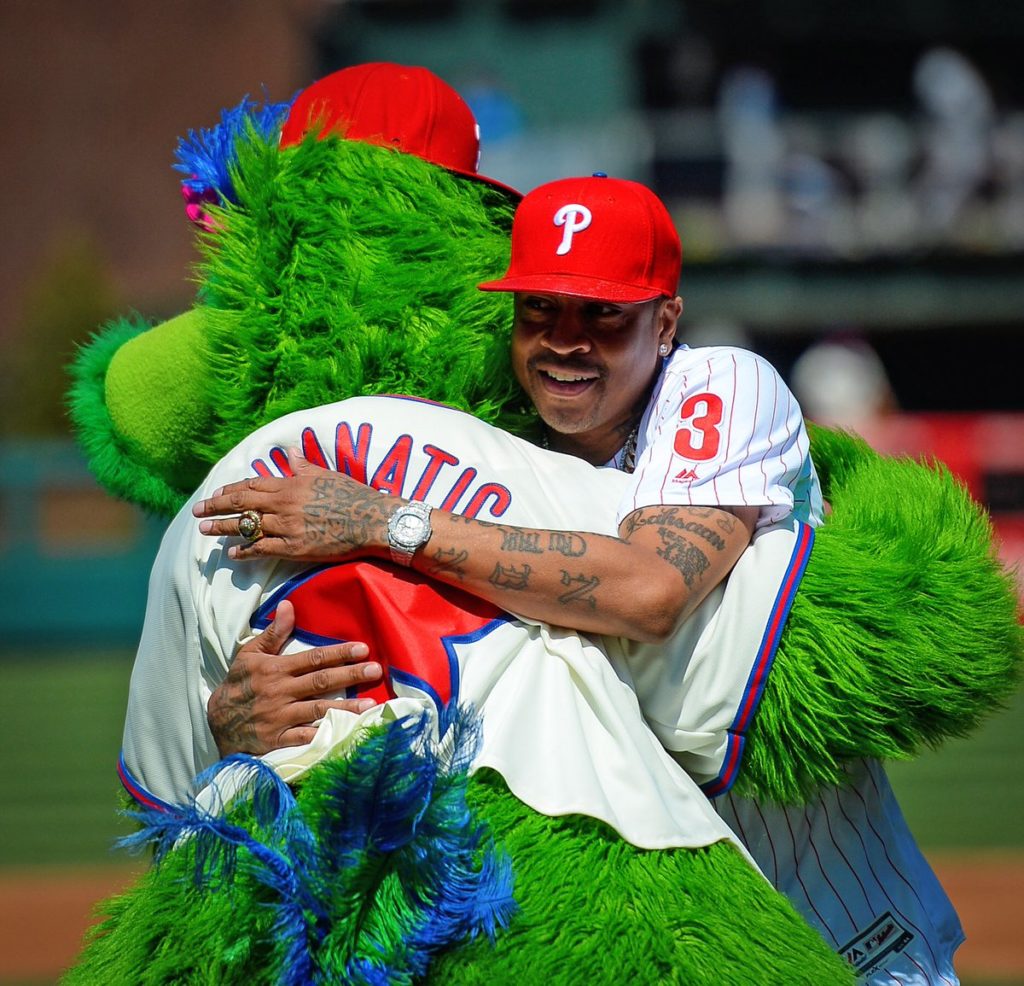Ad Disclosure
Lawyers for Phillie Phanatic Creators Respond to Magistrate Judge Ruling

In the legal battle over the rights to the Phillie Phanatic, the most recent update was a ruling from New York Magistrate Judge Sarah Netburn.
Two weeks ago, Netburn wrote that Bonnie Erickson and Wayde Harrison, the Phanatic’s creators, were the sole designers of the mascot, but accepted that the minor changes made this year by the Phillies fell within the Copyright Act’s “Derivative Works Exception,” which would mean the Phils should be able to proceed with use of the re-worked character.
In response, lawyers for Erickson and Harrison issued this statement:
NEW YORK – August 24, 2021 – On August 10, 2021, Magistrate Judge Sarah Netburn of the U.S. District Court for the Southern District of New York categorically rejected the Philadelphia Phillies’ claim that they had in any way contributed under copyright law to the creation of the Phillie Phanatic or its character. This decision rightfully found that Bonnie Erickson and her husband and business partner Wayde Harrison were the sole copyright creators of the iconic Phillie Phanatic.
Our clients are gratified that the decision confirmed the undeniable truth: that they alone created and originally owned the Phillie Phanatic—baseball’s most famous and enduring mascot who is enshrined in the Baseball Hall of Fame in Cooperstown.
Magistrate Judge Netburn also rejected the Phillies’ empty argument that the Phanatic was not properly registered with the U.S. Copyright Office, instead finding the registration made in 1979 to be valid. The Phillies’ attack on the validity of the registration by Bonnie and Wayde, and their ownership of the Phanatic, rang particularly hollow given that The Phillies organization has acknowledged Bonnie and Wayde’s authorship and original ownership for more than four decades, including doing so explicitly in the 1984 agreement with their business entity Harrison/Erickson.
Perhaps most significantly, the magistrate judge recognized that as the original authors and copyright owners, Bonnie and Wayde had the absolute right under U.S. copyright law to terminate the 1984 Phanatic copyright assignment to the Phillies, and properly did so on June 15, 2020. Thus, all rights to the original Phanatic were properly recaptured by Bonnie and Wayde in 2020, and his use by the Phillies after June 2020 requires a new license.
At the same time, we disagree with that part of the decision which found that very minor changes to the Phanatic made by the Phillies (characterized even by the judge as “no great strokes of brilliance”) were sufficient to create a 2.0 derivative Phanatic that the Phillies can use (but with significant limitations) going forward. We maintain that none of the trivial changes made by The Phillies—which debuted four months before their rights in the original Phanatic expired—are original artistic expression, and do not individually or collectively constitute a copyrightable derivative work.
If left uncorrected this low bar for a derivative work will thwart the very purpose and intent of the copyright termination provisions established by Congress to fairly compensate original creators for their works 35 years after they have licensed or granted rights in their creations, as Bonnie and Wayde did in 1984.
The fight of the original creators for their just due will continue. In the meantime, Bonnie and Wayde deeply appreciate all of the fan support—in Philadelphia and nationwide. Thank you to all of those paying close attention to the saga and rooting for the original Phanatic.
Thoughts?
I don’t think Phillies fans seem to give a shit one way or another. They just want to see the Phanatic at Citizens Bank Park, and don’t care how it happens. If the Phils need to give Erickson and Harrison a bazillion dollars, so be it. If the Phanatic is gonna have blue fur added, plus those other changes, so be it. It’s kind of like the movie Half Baked, where Thurgood tells Kenny how he’s going to bail him out of jail. Kenny doesn’t need the full explanation, he just wants them to “go sell weed” and hurry up and get the job done.
It is interesting, though, to consider the “derivative works” thing. Legal experts are studying this Phanatic situation because it seems to be setting a benchmark for how future copyright and derivative cases are handled.
@ 1st Glance: L-Old, R-New
1. Lighter Green
2. Hands free from fur
3. Blue around eyes, Lighter & more of it
4. Stars outline Eyes
5. Blue Socks
6. Red Shoes
7. Laces drawn on
8. Scale-like trim under the arms
9. (not pictured) Solid blue tail not green & blue pic.twitter.com/4M2vKdlvN4— Marc Farzetta (@MarcFarzetta) February 23, 2020
Kevin has been writing about Philadelphia sports since 2009. He spent seven years in the CBS 3 sports department and started with the Union during the team's 2010 inaugural season. He went to the academic powerhouses of Boyertown High School and West Virginia University. email - k.kinkead@sportradar.com